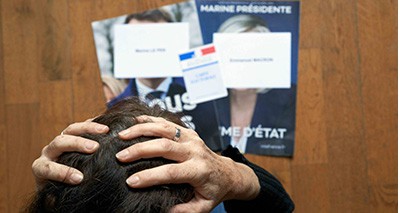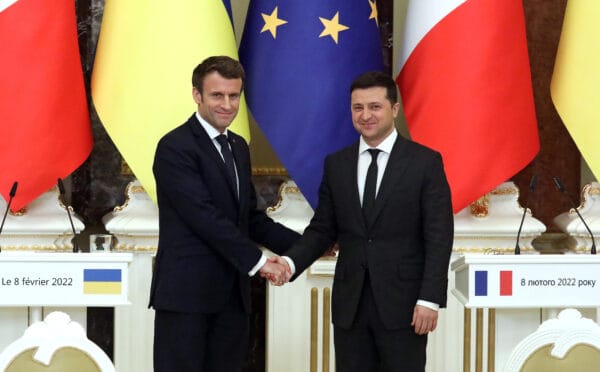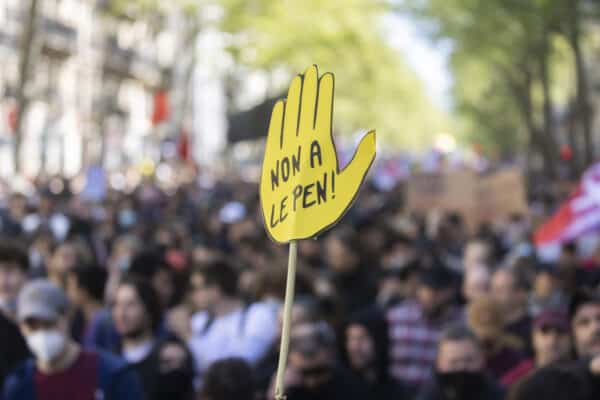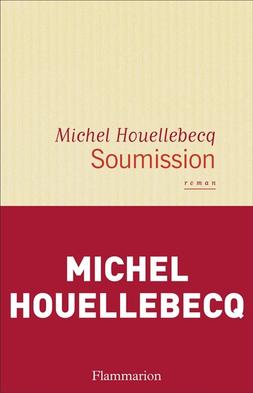The French Election: End of an Era?
Gregory Hood, American Renaissance, April 21, 2022

Credit Image: © Alain Pitton/NurPhoto via ZUMA Press
“Optimism is cowardice,” said Oswald Spengler. We shouldn’t have false hopes. French President Emmanuel Macron will probably win this Sunday’s runoff election against the National Rally’s Marine Le Pen. Bookies in London give the incumbent a better than 90 percent chance. After the first round, President Macron’s lead grew. I have yet to see a poll in which Marine Le Pen is ahead. She’s simply in striking distance.
Candidates in striking distance don’t win unless they land a heavy blow at the close. Marine Le Pen hasn’t. Her competent performance in the presidential debate (see our account below on the debate) wasn’t enough, and according to one poll, 59 percent of viewers gave President Macron the win. Still, she does have a chance, which is more than could be said of 2017, the first time she faced Mr. Macron.
It’s hard to say whether Marine Le Pen would have a better chance if President Vladimir Putin hadn’t launched his “special operation” in Ukraine. In Hungary, President Viktor Orbán faced a tough race until the invasion. After that, despite journalists promoting his supposed ties to President Putin, Mr. Orbán cruised to victory. He won despite a coalition of just about every other party in the country uniting against him and despite furiously hostile coverage from world media.

Hungary’s Prime Minister Viktor Orban speaks during a press conference following his landslide victory in the general elections in Budapest, Hungary, April 6, 2022. (Credit Image: © Attila Volgyi / Xinhua via ZUMA Press)
Could the same factors help Marine Le Pen? Europe’s decision to cut itself off from Russia is hurting its own citizens as well as Moscow. Supply chain disruptions, combined with more lockdowns and rapid inflation, could be very damaging. President Macron has never been shy about seeking international media coverage, but he looked ineffective when he failed to talk President Putin out of war. Now, he and other European leaders are hurting their own citizens by getting tough with Russia.
Putting your own country first is usually a wise political move. Unfortunately, unlike Viktor Orbán, Marine Le Pen is the challenger. During an international emergency, the incumbent usually has the advantage. The president of the French Republic represents the state, not just the government, and President Macron has not let this war go to waste. He has said the election will be a “referendum on Europe,” and thus represents the idea of a united “European” power, something vaguely inspirational even if poorly defined. It also means he can smear Marine Le Pen as too close to Russia, and thus, not truly patriotic.
Whatever your politics, you can find a version of Emmanuel Macron that you hate or like. He has opposed “woke” culture with more energy than most Republicans, but has also denied the Great Replacement. In secret, President Macron may even understand race, though he posed in demeaning pictures with a shirtless black giving the camera the finger. One constant is President Macron’s support for a stronger and more united European Union. Turkey could have united the EU around European goals. Instead, Russia did, and the populist Right in Europe has suffered. European governments are eager to send weapons to Ukraine, but not to defend their borders. Europe is also being defined not as our historic home but as a bastion of progressive values supposedly threatened by Russia.
In recent weeks, European governments have built up their armies, talked about expanding NATO, and said they would admit Ukraine into the EU. Though Europe remains dependent on America for now, these steps could conceivably lead to a powerful, culturally united, and economically independent continent. There’s a case for wanting President Macron to win and further that vision.

February 8, 2022: President of Ukraine Volodymyr Zelenskyy shakes hands with President of the French Republic Emmanuel Macron. (Credit Image: © Volodymyr Tarasovukrinform / DDP via ZUMA Press)
That case is wrong. President Macron is part of a post-French and even post-European ruling class presiding over a dying civilization. In the debate, President Macron said France needed more immigrants for the economy. In 2019, France dumped African migrants on Italy, a hostile act. Mr. Macron also criticized the Italian government in 2018 for not accepting an NGO ship with hundreds of African migrants. He has said that France has no culture or identity. His European Union would be a shopping mall, with whites increasingly replaced by Africans and Arabs. In his debate with Miss Le Pen, Mr. Macron said he wanted to “build a better world for our children and I want to protect them.” He has no children.
Marine Le Pen hasn’t backed down on her nationalist policies. She would change immigration laws to “preserve French people from migratory submersion.” Emmanuel Macron scoffed at her proposals, saying during the debate, “You’re going to cause civil war if you do it.” Those words alone show that France is finished. If it can’t control its borders or preserve its culture, it is no longer sovereign. All the stories about “no go zones” in France suddenly become much more plausible. Talk of “civil war” makes Mr. Macron’s swagger about Europe sound pathetic. His power stops at the first banlieue. Mr. Macron is trying to discredit Marine Le Pen by tying her to Russia, but he is implying he’s the great leader of a united Europe when he can’t even control his own country.
And in his country, many people are suffering. Marine Le Pen almost failed to reach the second round because of the unexpectedly strong challenge from Jean-Luc Mélechon. He is the leader of the socialist “France Unbowed” party. A veteran far-left activist, he opposed President Macron’s economic policies. Critics accused Mr. Mélechon of being soft on Russia, but he still did very well. His voters are the key battleground now.
The center parties collapsed in the first round. The traditional conservative party, the Republicans, ran Valérie Pécresse. She won less than 5 percent of the vote, her party’s worst-ever result. Just before the first round, she said she wouldn’t urge voters away from any party, seemingly accepting the National Rally as legitimate. After the first round, however, she endorsed President Macron. She claimed that Marine Le Pen’s supposed “historical proximity with Vladimir Putin discredits her from defending the interests of our country in these tragic times.” Former President Nikolas Sarkozy, who used to pose as a strongman fighting crime, also backs President Macron. So much for the center-right, eager to fight Russia but too cowardly to take on invaders at home.

Jean-Luc Mélechon (Credit Image: © Panoramic via ZUMA Press)
Mr. Mélechon’s voters will probably decide the election. Workers who want better jobs may vote for Marine Le Pen instead of Emmanuel Macron, the former investment banker. Others may stay home. Marine Le Pen’s best chance may be with those voters who wave signs attacking both candidates. Her own base (helped by an endorsement from Eric Zemmour) could turn out in force and win in a low-turnout election.
She should win. Restricting immigration increases the cost of labor, which helps working-class, left-wing voters. Miss Le Pen’s proposed tax cuts and aid to industry would help. She would also shift Paris’s focus back to France. She would use money spent overseas to help the French at home, something those who support the welfare state should welcome. Mr. Mélechon’s pro-worker voters should flock to the National Rally in the second round.
They probably won’t. Mr. Mélechon told his voters not to give a “single vote” to Marine Le Pen, though he didn’t endorse President Macron. Two polls cited here show a plurality of his voters may stay home on Election Day, with one poll claiming 44 percent and the other 36 percent. However, one poll also shows that those who will vote only slightly favor President Macron over Marine Le Pen.
There are voters on both the “Left and Right” — if we can use those terms — who should be able to agree on economic issues. Populism’s promise is that the people can unite around policies that would help workers and the middle class at the expense of arrogant, out-of-touch elites. It can come from the Left or Right and, at its best, should unite both.
President Macron is the very image of the elitist who cares little for the common man. He prompted the non-partisan “Yellow Vest” protests that exploded over cost-of-living fears, and showed how much workers disliked him. He mused about his “Jupiterian” presidency, and his top security official was caught on video beating a student protester. Film icon Brigette Bardot, who is sensible on demographic questions, accused President Macron of lacking empathy. If there is ever a moment for a “brown-red” populist rebellion, now is the time, and President Macron the target.

Yellow Jacket protest in Belfort on December 29, 2018. (Credit Image: Thomas Bresson via Wikimedia)
It won’t happen. Le Monde, France’s most prestigious paper, warned its readers that “there is still the unknown factor of how many of Jean-Luc Mélechon’s supporters will vote for the far right.” Unfortunately, that same story noted that in the 2017 presidential race between Marine Le Pen and Emmanuel Macron, some leftist voters told pollsters they would vote for Marine Le Pen but couldn’t bring themselves to do it.
Progressives are so afraid of anyone the media calls “far right” that they will spite the Right rather than vote to improve their own lives. The Guardian quoted Mélechon voters who said they would now vote for Mr. Macron or turn in a blank ballot. As they explained:
- We have to “keep out Le Pen, otherwise we’ll drift into far-right dictatorship.”
- “I voted Mélechon because he was fighting for equality and there were a load of racists running for president. I’m wondering what to do myself, whether to vote Macron or just a blank ballot.”
- “I think I’ll have to vote Macron in the end because the far-right rhetoric of this campaign has been very hateful and virulent. That risks leaving its mark on a country as diverse as France.”
Mr. Mélechon justifies racial mixture. This is “creolization” — mixing cultures until we have a common humanity. The writer and poet Edouard Glissant, who coined the term, calls it “irreversible.” During an early debate with Eric Zemmour, Mr. Mélechon promoted the idea. He said Mr. Zemmour had a “stunted view of France,” was a “danger to our country,” and promised, “You will not drive out Muslims.”
Muslims in France voted almost 70 percent for Mr. Mélechon, with Muslim social media reportedly promoting him so they “can live as free Muslims.” His strong showing shows there may be more non-whites than we think. France doesn’t collect race data, but the BBC reports that more than 10 percent of France’s population is foreign born. Many are non-white, and many native born are also non-white.

October 17, 2021, Toulouse, France: A woman wrapped in an Algerian flag films the protest. The banner reads ‘October 17th 1961 a state colonialist slaughter’. Dozens of protesters walk to commemorate the 60th anniversary of the slaughter of Algerian protesters by French police in Paris on October 17th 1961. (Credit Image: © Alain Pitton / NurPhoto via ZUMA Press)
And many non-whites do not like President Macron, who said in 2020 that “Islamic separatism” was a threat to France. Yasser Louati, who heads an NGO in Paris, says that the election is a choice between “the far right and fascism.” He doesn’t like President Macron but says if Marine Le Pen wins, “things will get even worse.” Many voters already think they are oppressed, but won’t vote for Marine Le Pen. Many will probably vote for President Macron just to keep her out. She may be able to win some struggling working-class towns, but she won’t be able to win many Muslims, student leftists, and progressives who are morally driven by race. Many leftists have also convinced themselves that Marine Le Pen would be a dictator.
She will probably lose — for two reasons. First, hard-left voters will choose neoliberalism over nationalism. Mr. Mélechon doesn’t think Marine Le Pen deserves even “one vote,” despite his opposition to Emmanuel Macron. Voting for Marine Le Pen would be a moral crime for progressives who fear an imaginary right-wing authoritarianism. She will win some workers who aren’t ashamed of being French. Some of them vote for the Left because of economic policies that would benefit them, even if they disagree or don’t care about race. Marine Le Pen, and nationalists generally, can win them over — but she will not convince enough of them.
The second reason is that Muslims are not (yet) building their own political parties. Instead, they are voting for hard-left parties. With France’s Left willing to dissolve French identity into a “creole” world and unwilling to expel immigrants even though they pull down wages, Muslims don’t need their own parties. They can work within existing leftist groups, helped by young whites who believe in white privilege and critical race theory.
Still, Michel Houellebecq, one of our age’s great writers, had it backwards when he wrote Submission. Muslims are not turning France into a conservative, Islamic, and more energetic nation. They are simply becoming part of the leftist coalition of anyone who isn’t white. There may be some separatist Muslim groups, but so long as they can do what they want in their own neighborhoods, they will vote for parties that support gay rights and social liberalism. They’ll get handouts, confident that no government will touch them for fear of “civil war.”
The same is true in America. Ilhan Omar is a Muslim but hardly a champion of social conservatism. Keith Ellison was a Muslim black nationalist, but now is part of Democrat leadership. Even Malcolm X ditched self-determination for the more profitable game of threatening whites and begging for scraps. The supposedly devout Muslim mixed easily with Trotskyites.
Instead of “Islamo-fascism,” the real Muslim threat in Europe might be another permanent underclass that makes especially large demands. White progressives and conservative Muslims may not get along in person, but they can’t be split politically. They have a common enemy in patriots, and therefore share common interests. White progressives also believe in, celebrate, and will fight for white decline.
This is why Marine Le Pen will lose again, even though she has an economic program that should carry her to victory. The modern Left is primarily a cultural movement, one that is “anti-racist.” Mr. Mélechon’s voters surely include some who would vote their economic interests by supporting Marine Le Pen, but that minority doesn’t represent the modern Left. If you truly believe you’re on the brink of a right-wing dictatorship, you vote for the guy you hate (President Macron) but don’t fear.
Marine Le Pen softened her image as much as possible without sacrificing core principles. She had a more hardline candidate in Éric Zemmour to smooth her path. She faces an arrogant president who doesn’t seem to care about French workers or rising costs-of-living. All those opposed to the system should be joining her — but they won’t.
They won’t because the entire Western moral order is based on fighting racism. World War II was retconned into a holy war against racism, the gravest sin in the progressive religion. This essentially religious movement whips up moral panics and unites disparate groups against the mortal threat. “Racism” is so broadly defined that anti-racists are in a state of permanent revolution, constantly looking for “Nazis” who don’t exist. Marine Le Pen’s accomplishments in the face of all this are heroic.

April 16, 2022, Paris, France – Demonstration to say no to the far right. (Credit Image: © Vincent Isore / IP3 via ZUMA Press)
We have more in common with nationalists in France, Germany, Italy, and other European nations than with many fellow Americans. However, while anti-white movements can be universal, nationalists are fighting separate battles. We may be waging desperate struggles to win control of nations that long since lost their cohesion. We’re nationalists without a nation. Perhaps we need to start thinking about that nation — a white nation, a place where all those of the West can build a common civilization.
There’s not much the National Rally could have done differently, and circumstances favored them. Marine Le Pen may not be the best candidate and someone new may emerge. However, even though her National Rally is growing, the system is rigged against it because the party must defeat every other political force in the country at once. Everyone is united against Marine Le Pen, even the center-right Republicans.
We need to defeat systems like this in every single white country. We must never give up on conventional politics, if only to spread a message, but in most “democracies,” the purpose of the political system seems to be keeping nationalists out of power.
* * *
The Debate This Time

Credit Image: © Maxppp via ZUMA Press
Even Marine Le Pen herself admits that she failed miserably when she debated Emmanuel Macron before the second round of the election in 2017. She was hostile, nervous, and badly prepared. This time, she was calm, polite, and had a good grasp of both her own policies and those of her opponent. It was Mr. Macron who got excited, who gesticulated and smirked, was sometimes condescending, and repeatedly interrupted his opponent. Miss Le Pen appeared vastly more “presidential” than the last time, in a debate between equals with different conceptions of how France should be governed. Still, it would be difficult to deny that Mr. Macron is smarter and smoother, and probably made fewer mistakes on facts and figures, but there was never a moment when he caught Miss Le Pen in an embarrassing mistake.
It was a disappointment for many foreign viewers that crime and immigration did not come up until near the end of a two-and-a-half hour debate. Most of the give-and-take was about how to deal with inflation, what to do about Ukraine, the EU, retirement age, climate change, energy policy, how to make France more innovative, and how to improve schools and hospitals.
The point on which Mr. Macron pushed Miss Le Pen most aggressively was her relationship with Russia, specifically, her campaign debt to a Russian bank that is said to be close to the Kremlin. He charged that in any negotiation with Vladimir Putin, she would be talking to her banker, not to the Russian head of state and that she had put herself into an inexcusable position of weakness. Miss Le Pen explained that she had to borrow abroad because no French bank would lend to her, which was a sign of the anti-democratic spirit of the French establishment. She said the party went into debt because it is not wealthy, and — this was the only time she became emotional — insisted that she is a staunch French patriot who will always put the nation’s interests first. She said it was an inexcusable insult to claim she could not represent France with the full powers of her office. The Russian debt is well known, so this exchange probably did not hurt her. She denounced Russian aggression in very strong terms, which belied any subservience to Russia or Mr. Putin.
There was a sharp exchange between the two candidates on women wearing veils in public, which Miss Le Pen would forbid. Mr. Macron called this a treasonous offense against the Enlightenment and the universalist spirit of France, and would require forbidding all religious symbols in public, including crosses and yarmulkas. Miss Le Pen said — all too often — that she is not against Islam or Muslims but against Islamization. She called the veil a hostile expression against France, and hopes that Christian and Jews would forego their symbols if that were necessary to ban the veil. She attacked Mr. Macron for not expelling nearly enough illegals and radical imams. She noted — and Mr. Macron did not deny — that only 10 percent of the people ordered out of France are actually expelled.
As for immigration — which she called “massive and anarchic” — Miss Le Pen proposed a national referendum that could change the French constitution so as to discriminate in favor of the French in employment and subsidized housing. She would also forbid amnesty for any illegal and expel all criminal foreigners. She would reject every asylum request made on French territory, deport all potential asylees, and make them apply from outside France. Mr. Macron said France needs productive immigrants to help the economy, and touted his fight against Islamic extremists.
Miss Le Pen spoke fervently about the importance of restoring respect for the police — even for showing love for them — and reminded the French that the police are their sole protection against rising barbarism. She listed crime increases, even in the countryside, where livestock are rustled and fertilizer supplies are stolen. And she made a clear connection between immigration — foreigners — and rising crime. She insisted on harsher sentences for criminals and called for more prisons to hold convicts longer.
The only chance for Miss Le Pen to win will be if she can win support from leftists, who do not have a clear champion in the second round. For leftists, it matters more what she said about economic policy than about immigration or Islam. She was therefore consistently to Mr. Macron’s left; she would keep the retirement age low, cut taxes on food and fuel, exempt young people from paying income tax, and let them ride for free on public transport in off hours. She wants a more generous social safety net across the board.
This debate was by no means a knockout blow, but if Miss Le Pen manages to win in the second round, it will certainly have helped her.
















